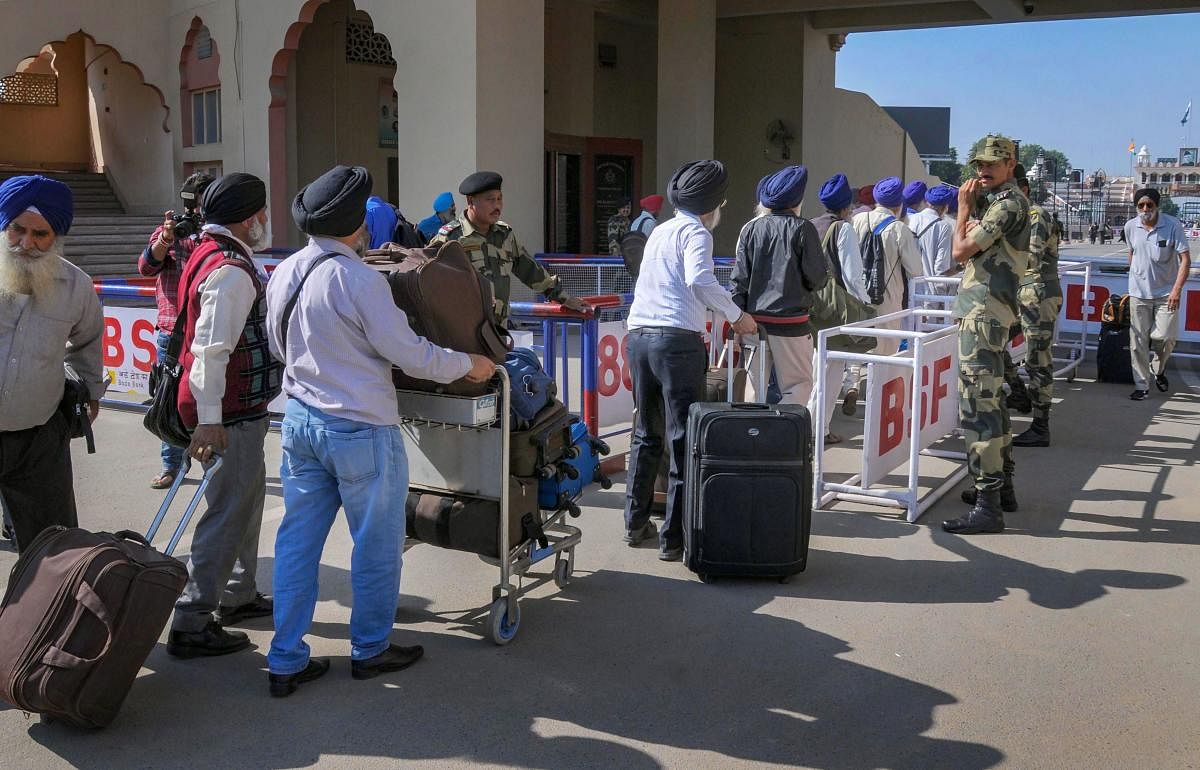
Just ahead of Kartarpur Corridor's opening on November 9 and the 550th birth anniversary of Guru Nanak on November 12, over 2,000 Indian Sikhs traversed across the Wagah border to pay homage to their founding father at Gurdwara Nankana Sahib in Kartarpur, Pakistan. The sacred site is said to be the birthplace of the Sikhism founder. The opening of the Corridor by Prime Minister Imran Khan has been viewed as a positive move in light of a hostile history shared by India and Pakistan, and the visiting pilgrims are hopeful that this development will create greater harmony.
So, what is the significance of Kartarpur for both the Punjabs of India and Pakistan?
Kartarpur's cultural significance dates back to 1504 AD. Literally translating to "place of God", Kartarpur was founded by Guru Nanak on the right bank of the river Ravi, which fell under Pakistani territory after the partition in 1947. This was the home of the first Sikh commune that welcomed Hindus and Muslims alike, and the place where Guru Nanak settled after his twenty extensive years of travel - a place previously inaccessible by Sikhs in India. After his demise in 1539 AD, his son buried his ashes on the left bank of Ravi, which lies in present-day Gurdaspur, Punjab, India.
The Kartapur Corridor will connect the Dera Baba Nanak shrine, which was built on the final resting site of Guru Nanak, to his place of birth. Indian pilgrims visiting will not require a visa to travel the 4.7 Kilometers away from the India-Pakistan border. As far as Sikhs from the US, Canada and other foreign countries are concerned, visit-visas to Lahore will be issued for their travel. The Indian Sikhs will return to their country on the 14th of November after witnessing the opening ceremony of the Corridor, visiting Gurdwaras in Pakistan's province of Punjab, and celebrating the birth anniversary of their founder.
While the foundation stones for the border-corridor were laid down as recently as 2018, the idea of it was tabled way back in 1998 during the leadership of Prime Ministers Nawaz Sharif and Atal Bihari Vajpayee, right before the inauguration of the Delhi-Lahore bus service in 1999.
Despite the move seeking to promote peace between the two countries, it is not free of controversy, much like everything else that involves Indo-Pak equations. A song promoting the opening of Corridor and released by Pakistan features pictures of dead Khalistan-separatists killed during Operation Blue Star in 1984 - Jarnail Singh Bhindranwale, Amrik Singh Khalsa and Shabeg Singh. However, numerous Gurdwaras in both countries contain images of them and the promotional video showing their posters is, therefore, nothing out of the ordinary.